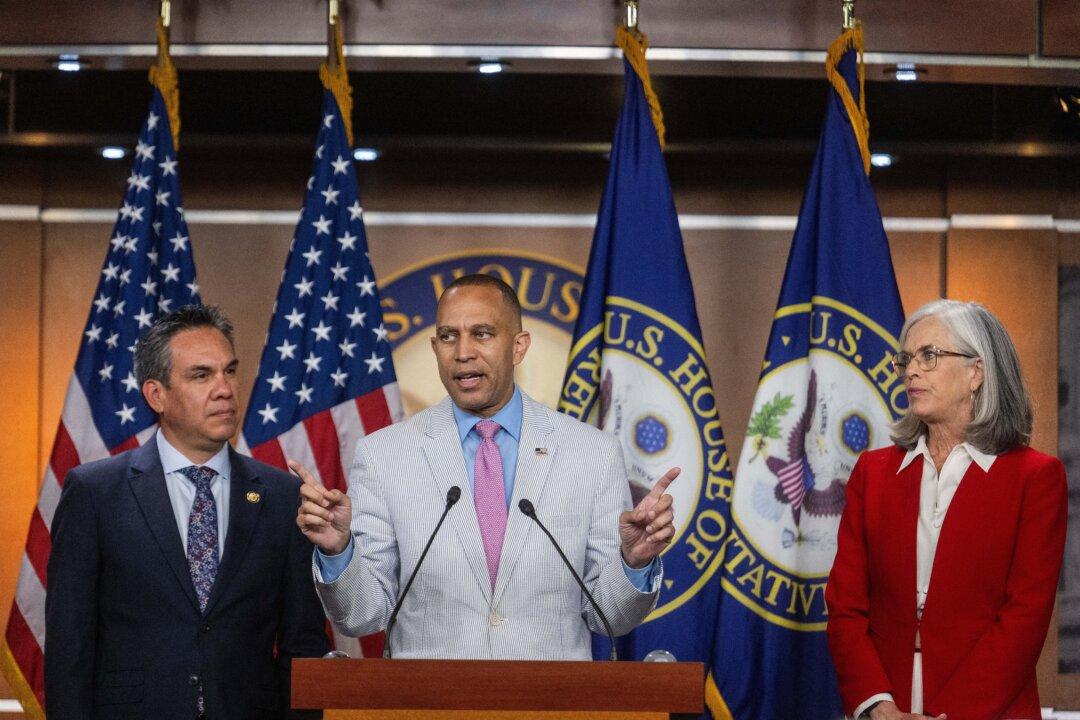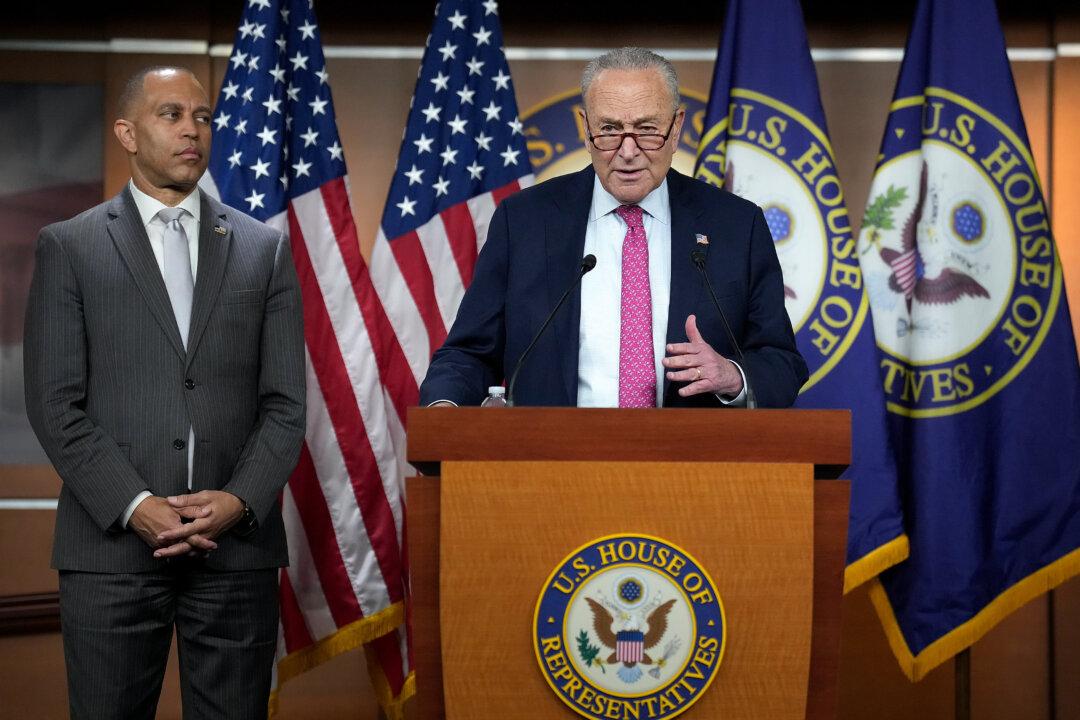Moderate Democrats are sharpening their economic message with new proposals aimed at lowering costs, boosting small businesses, and reviving the shrinking middle class as they offer a rebuttal to the Republican-backed “One Big Beautiful Bill Act” and seek to reset their party’s standing after major losses in 2024.
“The single, greatest security threat to the United States is not coming from abroad,” Slotkin, a former CIA analyst, said during a speech at the Center for American Progress. “It’s the shrinking middle class here at home.”
Slotkin’s address echoed many of the same themes, but with a pointed critique of both parties. She said Democrats have “lost touch” with core economic frustrations and must take responsibility for failing to deliver tangible results.
“Things aren’t off because Americans have stopped working hard,” she said. “It’s because the government hasn’t lived up to its side of the Great American deal.”
Her economic “war plan” calls for action across five key areas: jobs, education, housing, energy, and health care. She warned that artificial intelligence could hit the workforce harder than the internet did, and said Democrats must prepare by investing in small businesses, trade skills, and job training.
Slotkin called on her party to shed internal taboos and modernize its message.
“If we have to slaughter some sacred cows to do it, then so be it,” she said, criticizing the tendency of Democrats to lump small businesses in with large corporations and to treat climate action as a purity test rather than a cost-of-living issue.
Her proposals included streamlining housing regulations, banning cellphones in K–12 classrooms, expanding nuclear energy, and implementing a nationwide public health insurance option.
Underlying her policy push was a political argument: that Democrats cannot beat the GOP by playing defense alone.
“No team in history, on the field or in Washington, D.C., ever won a damn game without going on the offense,” she said.
Slotkin, who was elected in 2024 alongside President Donald Trump in her state, said many voters still feel unheard, especially in economically hard-hit states such as Michigan.
“It’s full of people who aren’t doing as well as their parents and their grandparents,” she said of her hometown, Holly.
“They can’t provide for their kids what was provided to them. Dad worked at the Ford Engine Plant and could afford a fishing cabin up north, but his son can’t afford one. Dad could take his kids to Disneyland, but the son can’t take his kids on vacation.
“Down the street from Holly is Flint, Michigan, where it’s gotten harder to get in the middle class in the first place. And this is the thing that many Democrats have quite frankly lost touch with.”
The New Democrat Coalition’s tax plan reflects a similar posture. It promotes expanding the Child Tax Credit and Affordable Care Act (President Barack Obama’s health care law, known as Obamacare) subsidies, proposes an enhanced Earned Income Tax Credit, and encourages domestic manufacturing through targeted incentives. The group also emphasized fiscal restraint, stating that it believes that Trump’s proposal would deepen deficits while slashing health and nutrition programs.
In a June 24 letter, the group—led by Rep. David Valadao (R-Calif.)—criticized plans to reduce the federal cap on Medicaid provider taxes, warning that the changes would destabilize state Medicaid funding and harm hospitals. They also raised concerns about work requirements and rushed timelines.
“The Senate version treats expansion and non-expansion states unfairly,” they wrote. “We cannot support a final bill that threatens access to coverage or jeopardizes the stability of our hospitals and providers.”
The House version of the bill maintains the current 6 percent provider tax cap, while the Senate proposal lowers it to 3.5 percent. Critics say the rollback could accelerate rural hospital closures, while supporters argue that it is necessary to rein in federal spending.
Slotkin said Democrats must learn from their past messaging failures and focus on what voters actually feel at home.
“Democrats have lost some of their alpha energy,” she said. “Sometimes people are not looking for a 13-page policy treatise on a website. They’re looking for you to show some fight.”
Slotkin’s remarks and the New Democrat Coalition’s tax framework both suggest a coordinated effort to reposition the party on economic issues ahead of the 2026 midterms—moving beyond criticism of Trump and toward a clearer, middle-class-centered alternative.
“We need to treat the moment with the seriousness it deserves,” Slotkin said. “And be relentless in protecting the country we all love.”






